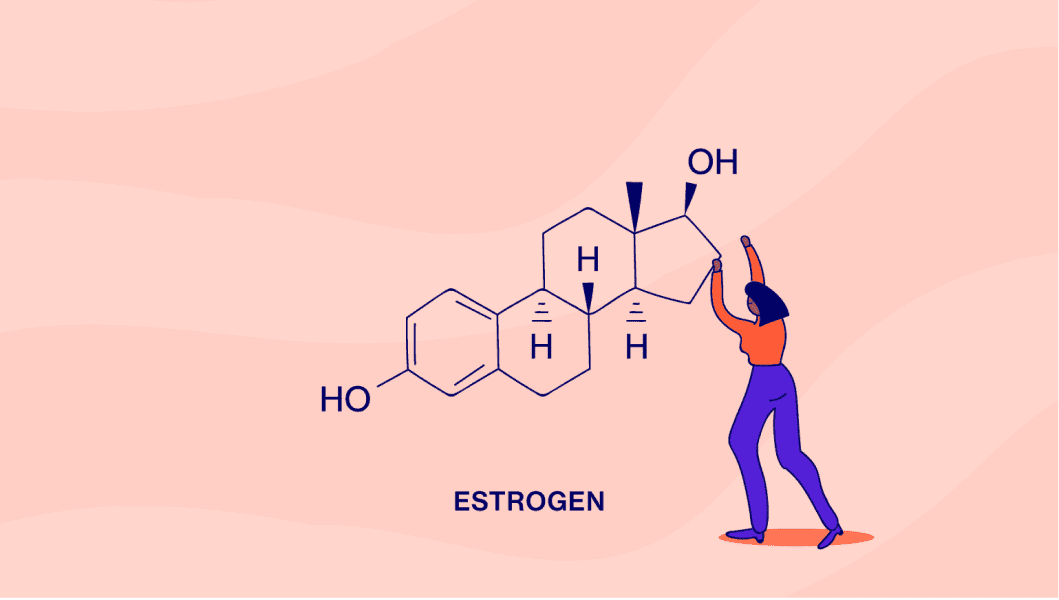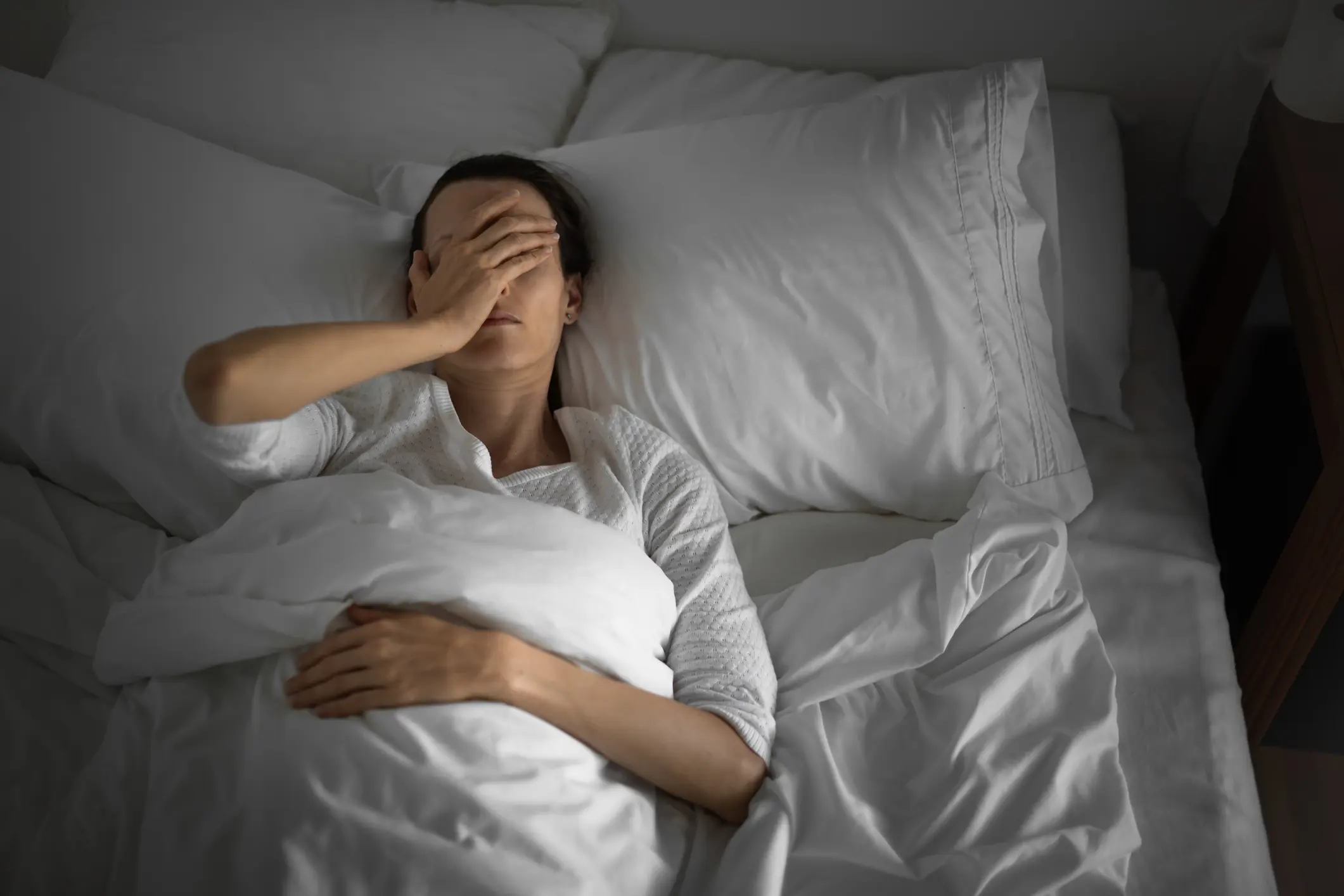
Published on Apr 18, 2023
Last modified on Apr 29, 2025
Hormone Therapy For Depression…Does It Help Or Hurt?
4 min read
Research shows that an estimated 38% of women experience symptoms of depression in late perimenopause which, considering the fact that 50 million women in the US are currently navigating menopause, is a staggeringly high figure.
Below, we outline what the science says about the impact of hormone therapy on depressive symptoms.
Let’s start with a quick refresher…what is hormone therapy?
During the menopausal transition, the body’s production of two key female hormones, estrogen/oestrogen and progesterone, begins to fluctuate and progressively decline. Hormone replacement therapy (or HRT, for short) involves taking a supplemental form of either estrogen, or estrogen and progesterone together, to balance out and replace what the body is no longer producing. Additional hormones such as testosterone and DHEA are sometimes used as well, but for the most part, HRT refers to estrogen only or estrogen and progesterone combos.
READ MORE: Elektra Guide To Hormone Replacement Therapy (HRT)
HRT’s controversial history
If you have heard HRT causes cancer, you’re not alone. Let’s take a step back for a sec to unpack this history, shall we?
Hormone therapy was once routinely used to treat menopausal symptoms and protect long-term health — so much so that by 1992, Premarin (an estrogen pill) was the best-selling drug in the US, with ~40% of women aged 50+ taking HRT.
And then 2002 rolled around, when prematurely published findings of a massive study — The Women’s Health Initiative (WHI) — suggested that HRT usage led to an increased risk of breast cancer, heart disease, and blood clots. This set off a public health media uproar that led many women and providers to abandon HRT practically overnight — we’re talkin’ 80% quitting cold turkey.
What many failed to notice, however, was that the sample group used in the initial WHI findings were already in a high risk category in terms of age and health. In fact, a significant group of WHI subjects saw improved (yes, improved) health outcomes and quality of life on HRT, including decreased heart disease and breast cancer.
Since the WHI study was published in 2002, hundreds of follow-up studies and clinical trials have been conducted in the United States by the National Institutes of Health (NIH) and other academic institutions. Today, the North American Menopause Society (NAMS) considers HRT to be safe and effective for most perimenopausal women (into menopause), especially when started prior to age 60 or within 10 years of menopause.
Can hormone therapy be used to treat depressive symptoms?
We’ve known for a while (as early as 1998, when Hadine Joffe, MD released findings) that there’s a link between estrogen, serotonin, and mood disorders. Recent studies and meta-analyses have found that hormone therapy is a viable treatment option for women with elevated depressive or psychological symptoms who have been screened for common risk factors.
- Oral contraceptive pills are typically prescribed for early-late perimenopause (not to be confused with premenopause)
- Hormone replacement therapy (HRT) is prescribed for late perimenopause-menopause
- Estrogen replacement therapy alone is not approved to treat perimenopausal depression. However, there is evidence that estrogen therapy has antidepressant effects, particularly for those suffering from vasomotor symptoms and other symptoms of menopause (e.g., hot flashes/flushes and night sweats).
Important: timing matters, and it should be noted that HRT in any form has not been found to have beneficial effects on mental health and other mood symptoms for postmenopausal women.
If you’ve heard the opposite (that HRT can actually increase the risk of depression)…
…you’re probably thinking about this Danish study from 2022 published in JAMA Psychiatry, which implied that systemically administered hormone therapy before 50 years of age was associated with a higher incidence of depression.
BUT! (important caveat here)…this study is not reliable for a few reasons:
- It’s a cohort study from 1995 through 2017 and relies on data from a registry
Why this is problematic: Unlike a case-controlled study, a “cohort study” samples a cohort of individuals who share a common characteristic, in this case, a common age group (aged 45 between 1/1/1995 and 12/31/2017) without prior oophorectomy, breast cancer, or cancer in the reproductive organs. As an observational study, the researchers did not have healthcare data on the women’s other symptoms, nor their reasons for starting HRT in the first place. As such, it could very well be the case that some women may have had undiagnosed depressive disorders prior to starting hormone therapy. - The women in the study are only on estrogen and progestin
Why this is problematic: We know now that the progesterone component is important and that women on this bioidentical tend to feel much better than when on synthetic progestins.The potential reason: progesterone increases the effects of GABA, a neurotransmitter that produces a calming effect when it binds to receptors. - We don’t have clarity around the estrogen doses the women were on
Why this is problematic: They may have been all over the map — not only with regards to dosage, but also delivery (local tablets, creams, rings, DHEA suppositories versus systemic gels, patches, pills, creams).
In short, all studies are not created equal…and all hormone therapy isn’t created equal, either. So we can’t make such a definitive statement from one singular, limited study.
READ MORE:



